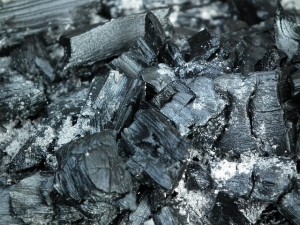13 item(s) were returned.
Partner
KL Gates
Our inability to provide enough skilled labor presents real and serious challenges to our ability to meet America’s energy demands over the coming decades. In recent years there has been a growing and increasingly vast shortage of skilled labor in the energy industry at every professional level, from technical specialists and operators to leaders and senior management. A Deloitte Survey from a few years ago put this in stark perspective with 70% of respondents from throughout the U.S. energy industry answering that given the current labor force, they would not be able to meet their future staffing needs. In addition,… [more]
View InsightOn September 16th, 2015, OurEnergyPolicy.org (OEP) hosted a panel event moderated by Mark Drajem of Bloomberg News on the EPA’s ozone rule and the energy sector at the National Press Club in Washington, DC. EPA is expected to announce a new standard for ground-level ozone, a smog-forming pollutant. Most believe they will reduce the existing standard from 75 parts per billion (ppb) to 65 or 70 ppb by 2025. According to EPA, this would prevent 4,200 premature deaths, between 1,400 and 4,300 asthma-related emergency room visits, and between 320,000 and 960,000 annual asthma attacks in children. The very spirited discussion… [more]
View InsightChair, Energy & Commerce Subcommittee on Environment & Climate Change, U.S. House of Representatives
Co-Chair, Sustainable Energy & Environment Coalition
Recently, House Republicans passed H.R. 1734, the so called Improving Coal Combustion Residuals Regulation Act of 2015, a direct attack on public health and the environment. This bill undermines important health protections in EPA’s final coal ash rule from last December by delaying implementation of coal ash disposal restrictions, letting utilities avoid publicly posting contamination data and allowing companies to continue dumping coal ash into leaking surface impounds for as many as eight years after contamination is documented. It enables harmful substances to remain in contact with aquifers, wetlands, and in seismic impact zones with serious implications for cleanup requirements,… [more]
View InsightMember
U.S. House of Representatives
Climate change is a threat to our environment and our economy, and we cannot afford the risk of inaction. With our free market economy, the best solution is a simple, transparent tax on carbon that unleashes the power of the market and enables America to lead the way toward a new, clean energy economy. Importantly, a carbon tax produces revenues that can be used to help American businesses and families. But there are many options for how to use these revenues. Critics of carbon taxes frequently cite slower economic growth, increasing taxes on the poor, and hurting coal workers as… [more]
View InsightDirector, Stakeholder Relations/External Affairs
Brookhaven National Laboratory
Keystone XL has been called the world’s best known pipeline that has not been built. Controversy over the pipeline itself has largely subsided but this project linking the oil sands of Northern Alberta to the large refineries of the Gulf Coast has become a rallying point for an “off oil” campaign. A presidential permit for import facilities is the sole remaining requirement before construction can begin. KXL would be the 82nd major pipeline in the US, and is the safest and most technologically advanced. It would provide diluted bitumen from Alberta’s oil sands and Bakken crude from Montana and North Dakota to… [more]
View InsightSenior Vice President of Policy & Research
Alliance to Save Energy
Senators Jeanne Shaheen (D-N.H.) and Rob Portman (R-Ohio) recently reintroduced the Energy Savings and Industrial Competitiveness Act (ESICA), S. 761. This bipartisan legislation will spur the use of energy efficiency technologies across residential, commercial and industrial sectors, while fostering job creation. Energy efficiency is the best way to address our energy needs, increase the competitiveness of our businesses and create sustainable jobs. ESICA is supported by over 200 entities, from industry to environmentalists, ranging from Dow Chemical to the Sierra Club. This broad support illustrates the value of identifying points of consensus and how energy efficiency is such an area… [more]
View InsightDistinguished Professor of Energy
University of California, Berkeley
If Peabody Energy, SSA Marine and Goldman Sachs really want to stimulate jobs in Washington State, as they claim in their support of the Gateway Pacific project, they can find much better ways to do so than building the sprawling $665 million coal terminal northwest of Bellingham, WA. They could use the money instead to fund energy-efficiency and renewable-energy projects, which per dollar invested, would create twice as many jobs at minimum. Modern coal terminals are highly mechanized facilities, and few workers are needed to operate them. As estimated in official project documents, the Gateway Pacific Terminal would support only… [more]
View InsightAlpha Natural Resources, the nation’s third-largest coal producer, has announced that it will “close four mines in Kentucky and West Virginia and idle two more over the next 12 months.” [E&E ClimateWire (sub. req.)] 152 Alpha employees will lose their jobs, while another 182 will be offered reassignment. The coal industry has been challenged recently by low natural gas prices and new federal clean air regulations. These factors have compelled some electric utilities to close their coal-fired power plants, or to switch them to natural gas or other, cleaner coal sources. Utilities such as FirstEnergy, Duke Energy, and American Electric… [more]
View InsightThe production tax credit (PTC) for wind energy is currently set to expire December 31st, 2012. The credit is currently 2.2¢ per kWh created by wind. The average price of electricity nationwide is 11¢ per kWh. A study released recently by the American Wind Energy Association (AWEA) states that without an immediate PTC program extension, wind energy “jobs will drop by nearly half, from 78,000 in 2012 to 41,000 in 2013.” According to the report, an extension of the program through 2016 could create nearly 17,000 wind industry jobs. Denise Bode, AWEA’s CEO, has stated that “these jobs could vanish if Congress allows… [more]
View InsightSenator Tom Coburn (R-OK) has released the 2011 Wastebook, his annual “guide to some of the most wasteful and low priority government spending”. Among the report’s targets is DOE’s Weatherization Assistance Program (WAP), a program that improves the energy efficiency of low-income family homes. Among the criticisms of the program highlighted by Senator Coburn: The DOE Inspector General found in a 2010 survey that the program suffered from poor workmanship, inflated contractor and material costs, and substandard home inspections to a level that “put the entire program at risk.” WAP-funded job training programs are sometimes unable to place trainees in… [more]
View Insight





